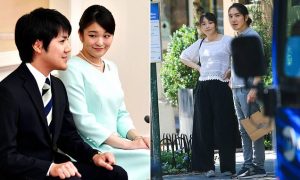
In Kharkiv, Ukraine’s second-largest city, the war has forced authorities to reimagine education. With schools above ground deemed unsafe due to constant missile strikes, six underground schools have been established in metro stations, providing a lifeline for 4,800 children.
Banned from traditional school buildings in 2023, Kharkiv’s education department collaborated with local officials to transform sections of the metro system into brightly lit classrooms. Teachers, health professionals, and local leaders are working tirelessly to maintain a sense of normalcy for students living under siege.
“This is our frontline—our educational frontline,” said Iryna Tarasenko, an official from the city’s education department. “We had no choice but to adapt. The children deserve to learn and grow, even in these difficult conditions.”
The underground schools, located in sealed-off sections of metro platforms, feature colorful classrooms with desks and walls decorated with rainbows, sunflowers, and other cheerful designs. Teachers report that while students were initially disoriented, the communal environment has helped them adjust.
Medical professionals are stationed on-site to monitor the children’s physical and mental health. Neurologist Dmytro Mitelyov, who works with the students, said the war has left lasting scars.
“These children live in constant stress—air raid alarms, explosions, and the loss of loved ones,” Mitelyov explained. “The trauma they’ve endured during these formative years will affect their mental health long into adulthood.”
Despite these challenges, teachers and students strive to maintain resilience. Headmistress Olena Nikolienko emphasized the importance of planning for safety. “If a missile threat arises, we have evacuation plans to guide the children to shelters,” she said.
The students, however, are not immune to the emotional toll. During a bus ride back to an old school building—now a pickup point for parents—10-year-old Alisa began to cry quietly. Her teacher comforted her, explaining that she had lost her grandfather on the frontline just months earlier.
Yet moments of joy persist. After school, children dashed into the season’s first snowfall, tossing snowballs and laughing—a fleeting reminder of the childhood they fight to reclaim.
“This is not just about education,” said Tarasenko. “It’s about giving these children hope for a future beyond the war.”







